Bupleurum
[Medicinal Use] This product is the root or whole herb of Bupleurum chinense or Bupleurum chinense of the Umbelliferae family.
[Nature and flavor and meridians] Bitter, flat. Enters the pericardium, liver, triple burner, and gallbladder meridians.
[Effects] Relieve exterior symptoms, reduce fever, soothe the liver and relieve depression, and raise Yang Qi.
[Clinical Application] 1. Used for colds, fevers, etc.
Bupleurum has the function of relieving exterior symptoms, and is often used with Pueraria lobata and Notopterygium incisum to treat colds.
2. Used for symptoms such as alternating colds and heat, and malaria.
Bupleurum has a better antipyretic effect. When the evil is in Shaoyang and there is alternating colds and heat, it is often used with Scutellaria baicalensis and Pinellia ternata (such as Xiao Chaihu Decoction); for malaria, Bupleurum can be used in combination with Amomum villosum and Citrus aurantium.
3. Used for symptoms such as liver qi stagnation, flank pain, and irregular menstruation.
Bupleurum not only has a good effect of soothing the liver and relieving depression, but also serves as a guide for all liver-soothing drugs, and is an important drug for treating liver qi stagnation. It can be used for rib pain regardless of whether it is caused by liver depression or external injury; it can be used together with Chinese angelica, white peony root, cyperus rotundus, and curcuma for irregular menstruation or dysmenorrhea caused by liver qi stagnation.
4. It is used for qi deficiency and sinking, chronic diarrhea and prolapse of the anus, uterine prolapse and other symptoms.
Bupleurum has a floating nature. When combined with qi-tonifying drugs such as Codonopsis pilosula and Astragalus membranaceus, it can raise the yang qi for qi deficiency and sinking, chronic diarrhea and prolapse of the anus, uterine prolapse and other symptoms.
Where is the main medicinal part of Bupleurum?
Medicinal part of Bupleurum:
This product is the dried root of Bupleurum chinenseDC. or Bupleurum scorzonerifolium Wild. of the Umbelliferae family. According to different properties, they are commonly known as “Northern Bupleurum” and “Southern Bupleurum”. It is dug in spring and autumn, and the stems, leaves, mud and sand are removed, and dried. Characteristics of the medicinal parts of Bupleurum:
Northern Bupleurum is cylindrical or oblong-conical, 6~15cm long and 0.3~0.8cm in diameter. The root head is swollen, with 3~15 stem bases or short fibrous leaf bases remaining at the top, and branches at the bottom. The surface is dark brown or light brown, with longitudinal wrinkles, root traces and lenticels. It is hard and tough, not easy to break, and the cross section is fibrous. The cortex is light brown, and the wood is yellow-white. It has a slight fragrance and a slightly bitter taste.
Southern Bupleurum has thinner roots, conical, with many fine hair-like dead leaf fibers at the top, and the lower part is mostly unbranched or slightly branched. : The surface is reddish brown or black brown, with many fine ring patterns near the root head. It is slightly soft, easy to break, and the cross section is slightly flat, not fibrous. It has a rancid oily smell.
How are Bupleurum chinense recorded in ancient books?
《本经》: “It is used to treat gas in the stomach and intestines, food accumulation, cold and heat evil spirits, and to treat the old and bring in the new.
《医学源·药类法像》: “Bupleurum chinense is a medicine for guiding the meridians of Shaoyang and Jueyin. It is a must-have medicine for women before and after childbirth. It is good at eliminating headaches caused by this meridian, which cannot be stopped without this medicine. It treats the distension under the heart and pain in the chest and diaphragm… It leads the stomach qi to rise to disperse the surface heat.
《滇南本草》: “Bupleurum chinense is used to induce sweating in typhoid fever, and it can only be used after four days. If it is used before, the yang symptoms will be introduced into the yin meridians, so it should be avoided.
《本草刚目·卷十三》: “There are five kinds of fatigue, and the disease is in the five internal organs. If the fatigue is in the liver, gallbladder, heart and pericardium with heat, or the Shaoyang meridian has cold and heat, then Chaihu is a must-use medicine for the Jueyin and Shaoyang meridians of the hands and feet; if the fatigue is in the spleen and stomach with heat, or the Yang Qi sinks, then Chaihu is a must-use medicine to draw in clear Qi and reduce fever; but if the fatigue is in the lungs and kidneys, it is not necessary. However, Li Dongyuan said that it should be added for those with heat, but not for those without heat.
“Ben Cao Jing Shu”: “Bupleurum is a medicine for Shaoyang meridian. It is used to treat qi stagnation in the heart, abdomen, intestines and stomach, food accumulation, cold and heat evil qi, and to remove the old and bring in the new. It can also treat those with typhoid fever and heart heat. It is also the gallbladder of Shaoyang.
Эффекты
Bupleurum has the effects of dispersing and reducing fever, relieving liver depression, and raising Yang Qi.
What are the main effects and clinical applications of Bupleurum?
Bupleurum is used for colds and fever, alternating cold and heat, chest and flank pain, irregular menstruation, uterine prolapse, and rectal prolapse.
Exogenous fever, alternating cold and heat
For the treatment of exogenous fever, this product can be used alone;
·Treat typhoid fever in Shaoyang, with symptoms of alternating cold and heat, chest and flank bitterness, dry throat and dizziness, etc., and it is often used with Huangling.
Syndrome of liver depression and qi stagnation
Treat chest and flank pain, emotional depression, and irregular menstruation and dysmenorrhea in women caused by liver failure to dredge and release, qi stagnation, etc., and it is often used with Cyperus rotundus, Chuanxiong, white peony root, etc. For the treatment of liver depression Blood deficiency, spleen dysfunction, symptoms of flank pain, fatigue, loss of appetite, or irregular menstruation, breast pain, often used with angelica, white peony, white atractylodes, etc.
For liver depression and qi stagnation, chest distension and fullness, stomach pain, often with Corydalis, Citrus aurantium, Cyperus rotundus, etc.
Spleen deficiency and qi collapse syndrome
Symptoms include chronic diarrhea, rectal prolapse, uterine prolapse and other visceral prolapse, often used with Astragalus, ginseng, Cimicifuga, etc.
What are the compound preparations containing Bupleurum?
Bupleurum oral liquid
Relieves the symptoms and reduces fever. Used for exogenous fever, symptoms include fever, red face, headache, body pain, dry mouth and thirst.
Chaihu Shugan Pills
Soothe the liver and regulate qi, relieve swelling and relieve pain. Used for liver qi discomfort, chest and flank tightness, food stagnation, vomiting of acid water.
Xiao Chaihu Tablets
Relieve the symptoms and dissipate heat, soothe the liver and harmonize the stomach. Used for exogenous diseases, evil invades Shaoyang syndrome, symptoms include alternating cold and heat, chest and flank bitterness, loss of appetite, irritability and vomiting , bitter mouth and throat
Zheng Chaihu Yin Granules
Disperse wind and cold, relieve fever and relieve pain. Used for fever, chills, no sweating, headache, nasal congestion, sneezing, itchy throat, cough, and pain in the limbs caused by exogenous wind and cold; patients with the above symptoms in the initial stage of influenza and mild upper respiratory tract infection.
Qizhi Weitong Tablets
Soothe the liver and regulate qi, harmonize the stomach and relieve pain. Used for liver depression and qi stagnation, chest distension, and stomach pain.
Xiao Chaihu Tang
Changing cold and heat, bitter fullness in the chest and ribs, silent and unwilling to eat, upset and nausea, bitter mouth, dry throat, and dizziness; heat enters the blood and reconciles Shaoyang. Indications: Shaoyang syndrome of typhoid fever, typhoid fever in women, menstruation is interrupted, and cold and heat attacks occur at times; jaundice, malaria, and internal injuries and miscellaneous diseases with Shaoyang syndrome.
Xiaoyao Powder
Indications: Liver depression, blood deficiency, and spleen weakness. Pain in both ribs, headache and dizziness, dry mouth and throat, fatigue and less appetite, or irregular menstruation, milk to relieve liver depression, nourish blood and strengthen Spleen. : Painful swelling in the room, stringy and weak pulse.
Buzhong Yiqi Decoction
Replenish the middle and replenish qi, raise yang and lift the sunken. Indications: spleen deficiency and qi sinking syndrome, decreased appetite, fatigue and limb weakness, lack of breath and lazy speech, sallow complexion, loose stools, pale tongue and weak pulse, as well as prolapse of the anus, prolapse of the uterus, chronic diarrhea and dysentery, metrorrhagia, etc.: Qi deficiency fever syndrome, fever and spontaneous sweating, thirst and preference for hot drinks, shortness of breath and fatigue, pale tongue, and weak pulse.
Modern research progress on Bupleurum
This product has multiple pharmacological effects such as antipyretic, anti-inflammatory, anti-pathogenic microorganisms, anticonvulsant, hypolipidemic, liver protection, bile-promoting, inhibition of gastric acid secretion, anti-ulcer, anti-tumor and immune regulation.
Использование
Bupleurum is generally used as Bupleurum slices, decocted for oral administration, and the medication should be taken strictly according to the doctor’s instructions.
How to use Bupleurum correctly?
When Bupleurum decoction is taken orally, the common dosage is 3~109.
Through different processing methods, Chinese medicinal materials such as Bupleurum, Vinegar Bupleurum, and Turtle Blood Bupleurum can be produced. It is suitable to be used raw to relieve fever; it is suitable to be roasted with vinegar to relieve liver and depression, and it can be used raw or roasted with wine to raise Yang Qi. Different processing methods have different effects, but the method of use is the same. Please follow the doctor’s advice for specific medication.
Bupleurum is generally used in decoctions, decocted and taken, and can also be made into powder or pills for consumption. However, the use of Chinese medicinal materials must be treated according to syndrome differentiation and should be used under the guidance of professional Chinese medicine practitioners. It should not be used at will, and it is even more forbidden to listen to Chinese medicine prescriptions and advertisements at will.
Совместимость с традиционными средствами китайской медицины выглядит следующим образом:
Bupleurum with Scutellaria: Bupleurum is good at dispersing fever; Scutellaria is good at clearing heat and purging fire. The two medicines are matched, which is good at clearing away the evil heat of the half surface and half interior, and treating the alternation of cold and heat in Shaoyang.
How to prepare Bupleurum?
Bupleurum
Take the original medicinal materials, remove impurities and residual stems, wash, moisten, cut into thick slices, and dry.
Vinegar Bupleurum
Take Bupleurum slices and add rice vinegar to mix well, steam until moistened, put in a frying pot, heat over low heat and fry until dry, take out and cool. For every 100kg of Bupleurum slices, use 20kg of rice vinegar.
Turtle Blood Bupleurum
Take Bupleurum slices and mix them with a mixture of turtle blood and rice wine to absorb them completely. Stir-fry over low heat. For 1kg of Bupleurum slices, use 130g of turtle blood and 250g of rice wine.
Which drugs should be used with Bupleurum at the same time with special attention?
The combined use of Chinese medicine and the combined use of Chinese and Western medicine requires syndrome differentiation and clinical individualized treatment. If you are using other drugs, please consult a doctor before taking the medicine, and inform the doctor of all your diagnosed diseases and treatment plans you are receiving.
Инструкции по приему лекарств
Bupleurum has the property of promoting hair growth, so it is not suitable for patients with true yin deficiency and liver yang rising.
What precautions should be taken when using Bupleurum?
It should be avoided or used with caution for patients with yin deficiency and yang hyperactivity, liver wind movement, yin deficiency and fire hyperactivity, and qi upward movement.
·The dried rhizome of Bupleurum chinense has dense rings on the surface and is poisonous. It cannot be used as Bupleurum chinense.
During the medication period, it is necessary to avoid eating cold, raw and cold food, spicy and greasy food.
Pregnant and lactating women: If you are pregnant, planning to be pregnant or are lactating, please inform your doctor in time and consult whether Chinese medicine can be used for treatment.
·Children: Children’s medication must be carried out under the guidance of a doctor and adult supervision
· Пожалуйста, храните лекарственные средства надлежащим образом и не передавайте свои лекарственные средства другим лицам.
How to identify and use Bupleurum chinense?
Bupleurum chinense tastes spicy and bitter, is slightly cold in nature, and belongs to the liver, gallbladder, and lung meridians. It has the functions of dispersing and reducing fever, soothing the liver and relieving depression, and raising yang energy. It is used for colds and fever, alternating cold and heat, chest and flank pain, irregular menstruation, uterine prolapse, and rectal prolapse. The raw product has a strong dispersing effect.
The dispersing nature of vinegar Bupleurum chinense is moderate, and the effect of soothing the liver and relieving pain is enhanced. It is mostly used for symptoms such as flank pain, abdominal pain, and irregular menstruation caused by liver depression and qi stagnation.
The blood-clearing Bupleurum can replenish Yin and nourish blood, inhibit its floating Yang nature, enhance the effect of clearing the liver and reducing fever, and can be used for heat entering the blood chamber, bone steaming and fatigue fever.
Наиболее часто задаваемые вопросы пациентов
The efficacy and function of Xiao Chaihu granules
Xiao Chaihu decoction is a conciliatory agent. It has the effect of reconciling Shaoyang. It is mainly used to treat Shaoyang syndrome of typhoid fever, with symptoms of alternating cold and heat, bitter fullness in the chest and ribs, silent and unwilling to eat, upset and nausea, bitter mouth, dry throat, dizziness, thin white tongue coating, and stringy pulse: heat entering the blood chamber syndrome, symptoms of women with typhoid fever, menstrual water interruption, and occasional cold and heat attacks: jaundice, malaria, and internal injuries and miscellaneous diseases with Shaoyang syndrome. It is clinically used to treat colds, influenza, malaria, chronic hepatitis, cirrhosis, acute and chronic cholecystitis, gallstones, acute pancreatitis, pleurisy, otitis media, puerperal fever, acute mastitis, orchitis, bile reflux gastritis, gastric ulcer, etc., which are evil in Shaoyang and gallbladder and stomach disharmony.
Effects and functions of Chaihu Shugan San
Chaihu Shugan San is a Qi-regulating agent. It has the effects of soothing the liver and regulating Qi, activating blood circulation and relieving pain. It is mainly used to treat liver qi stagnation syndrome. Symptoms include pain in the ribs, chest tightness, sighing, depression and irritability, or belching, abdominal distension, and stringy pulse. It is commonly used in the clinic to treat chronic hepatitis, chronic gastritis, intercostal neuralgia, etc., which are caused by liver depression and qi stagnation.
Differences between Da Chaihu Tang and Xiao Chaihu Tang
Da Chaihu Tang is derived from Xiao Chaihu Tang with additions and subtractions. Both can treat Shaoyang syndrome. Xiao Chaihu Tang usually plays the main role in treatment, while Da Chaihu Tang is mainly based on reconciliation. Da Chaihu can usually treat complications caused by wind-heat, such as fullness and pain under the heart, red tongue coating, or vomiting and bloody stools. Xiao Chaihu Tang can usually dispel cold and heat, relieve bitter mouth, dry throat, dizziness and other symptoms。
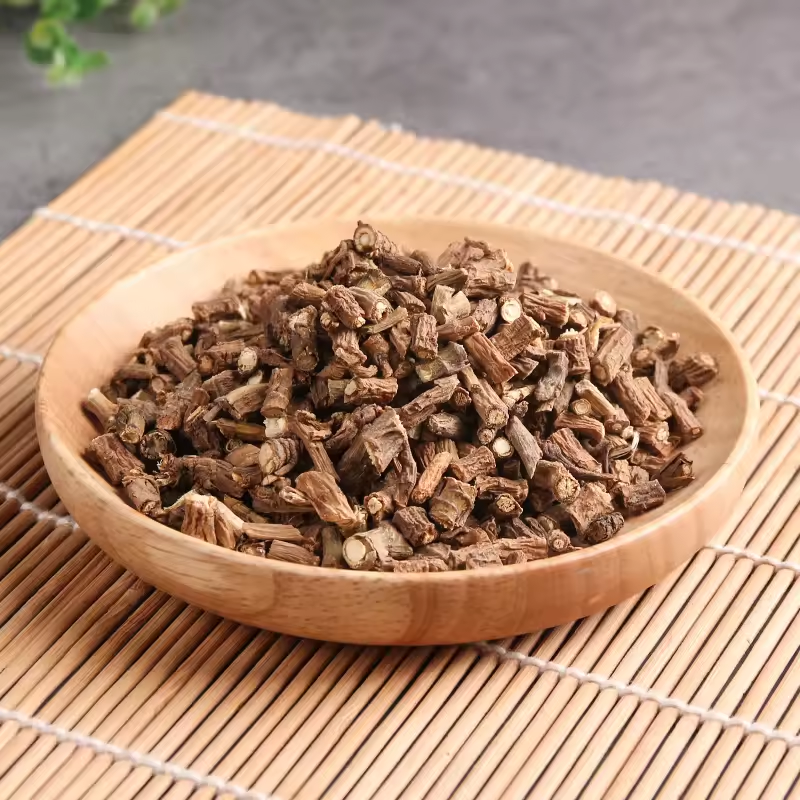
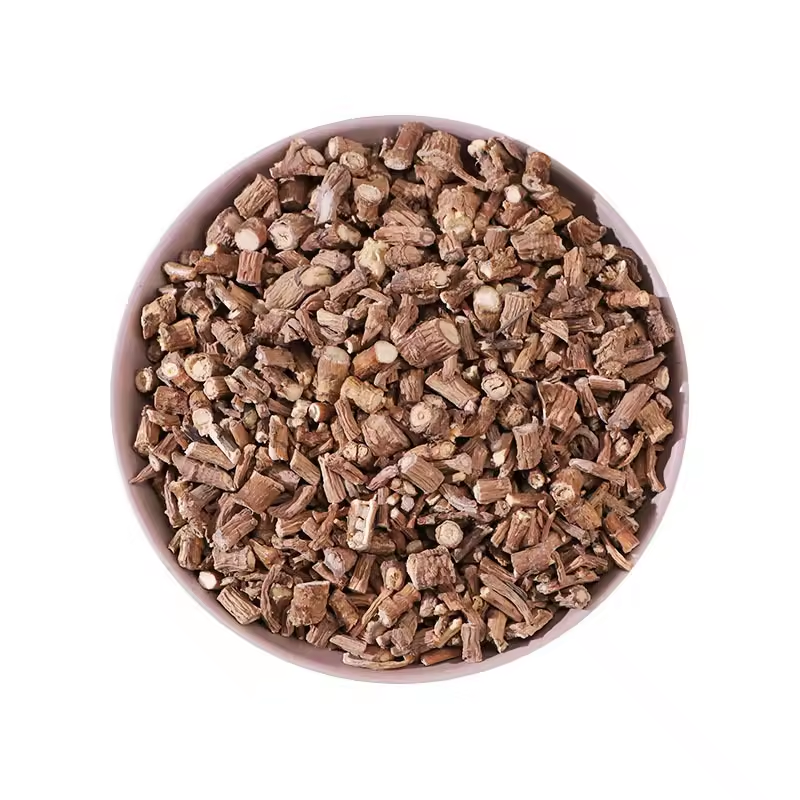
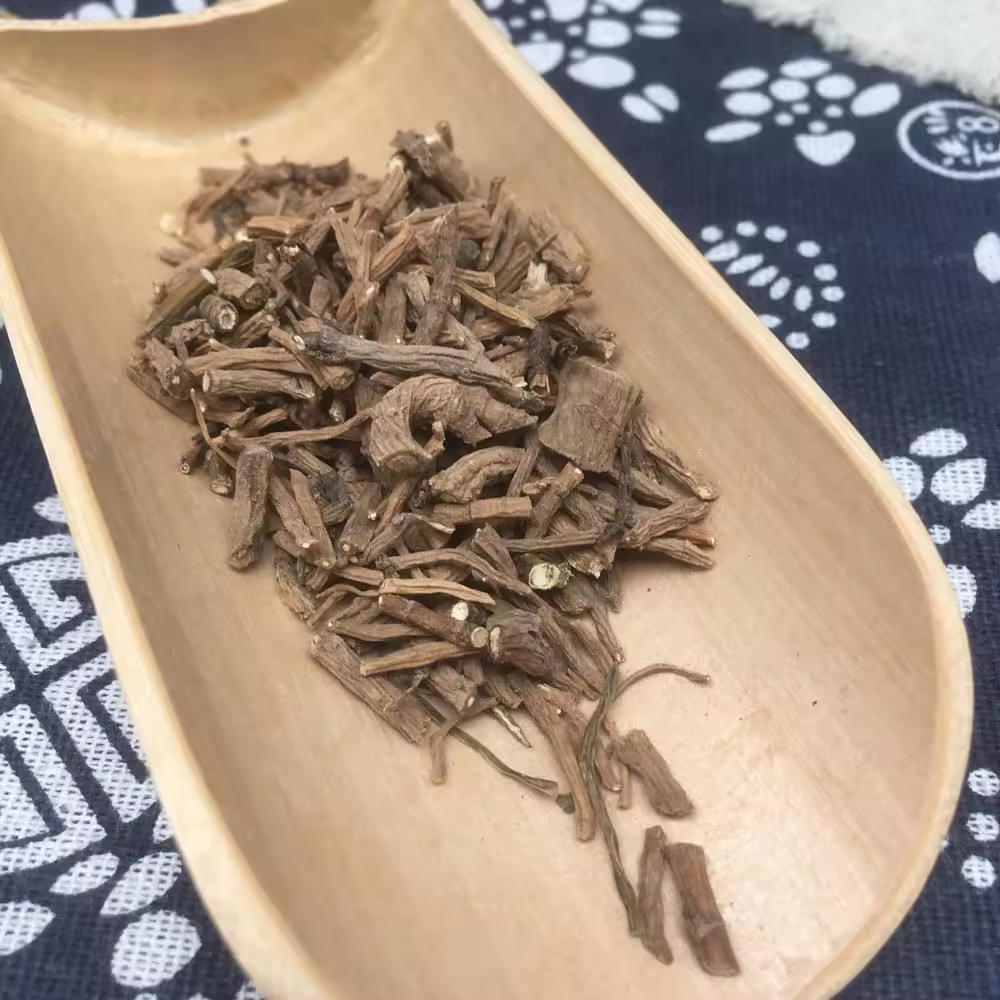




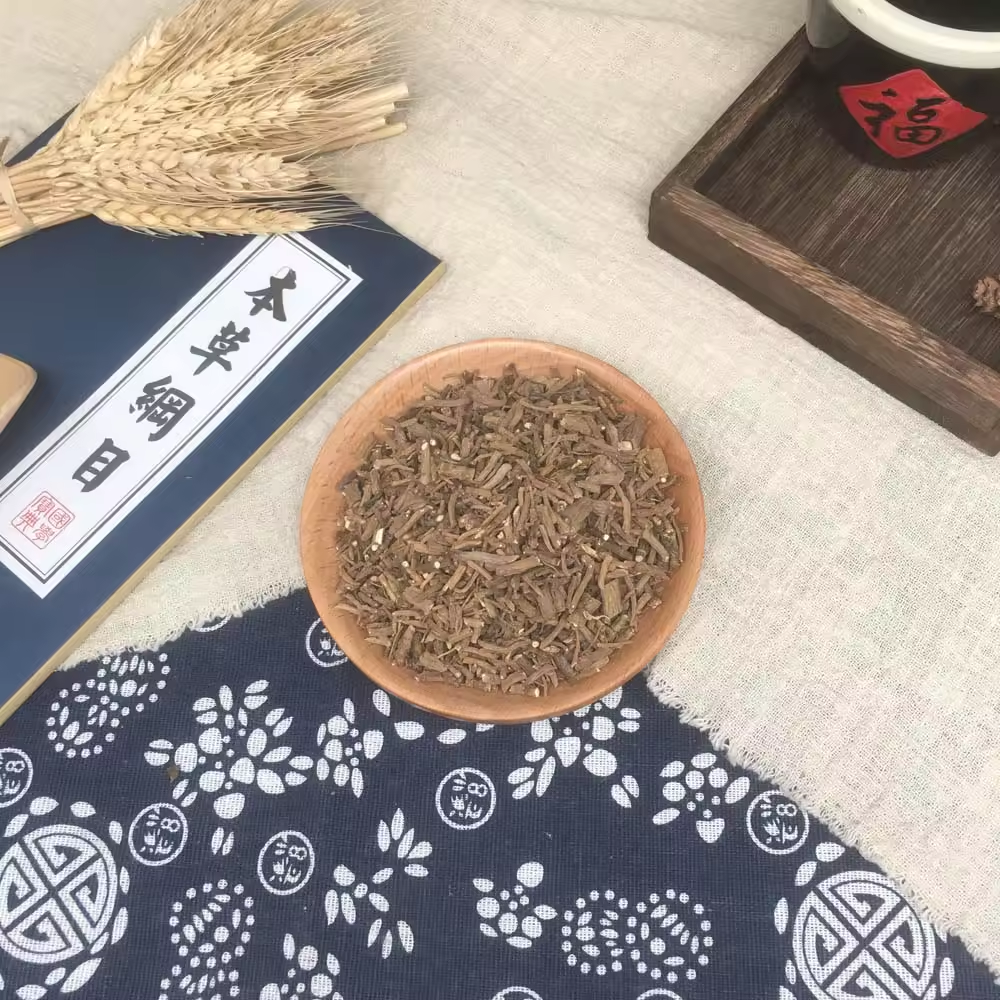
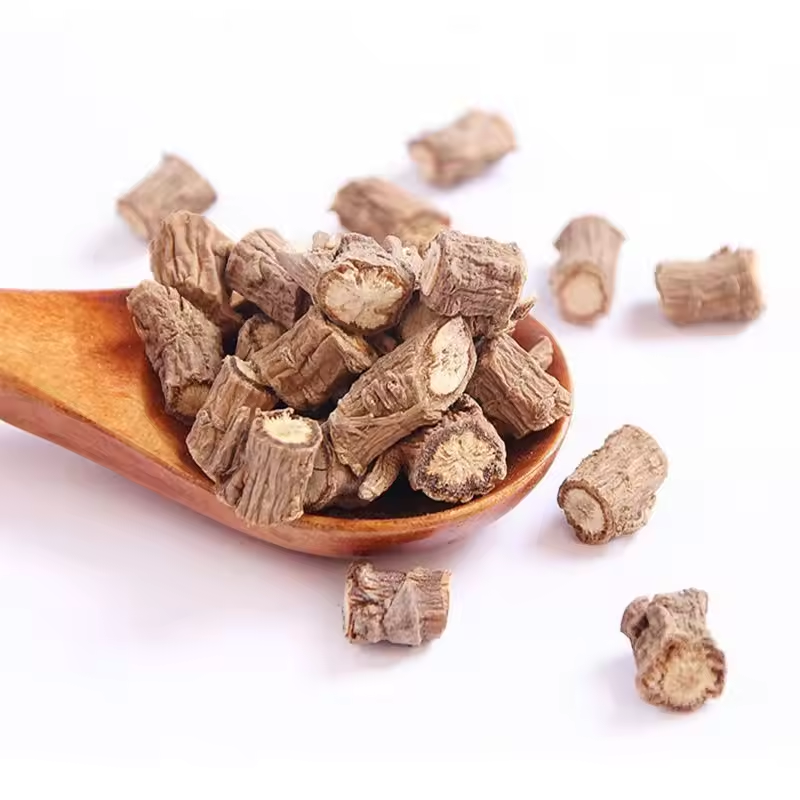
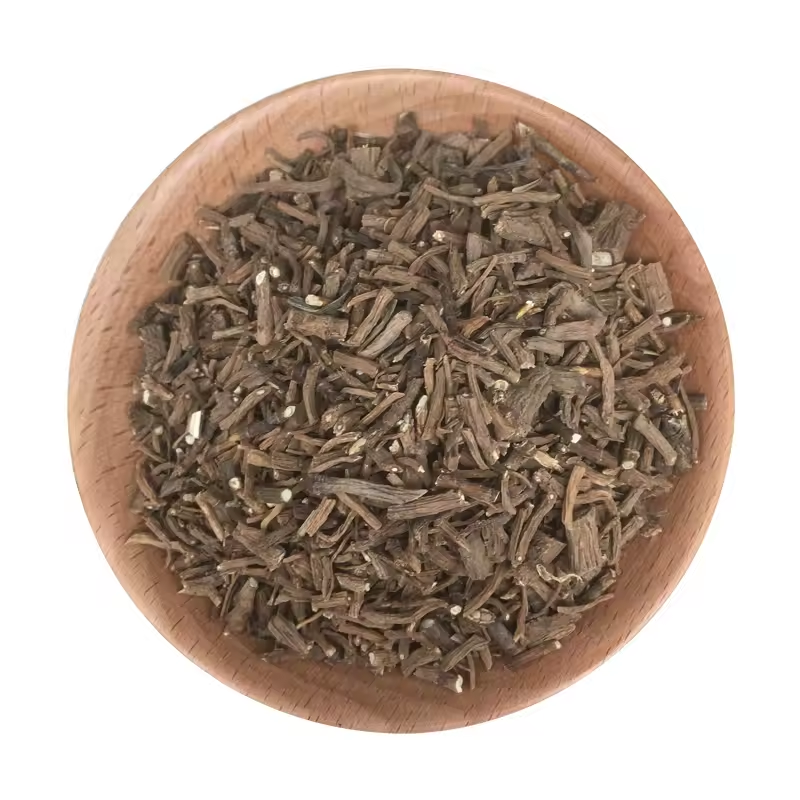

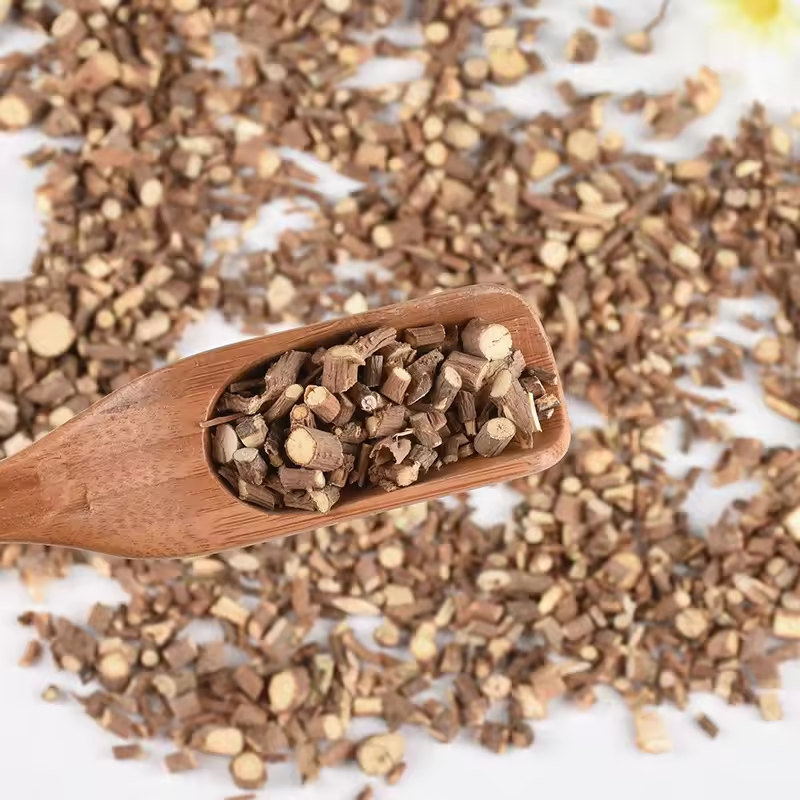
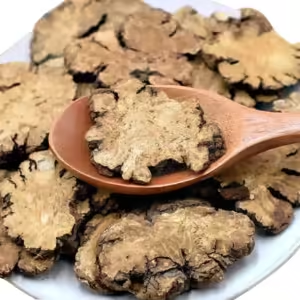

Отзывы
Отзывов пока нет.